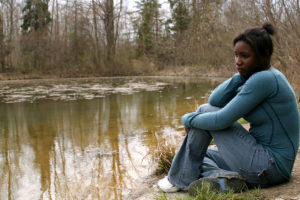
Pelin Kesebir, Assistant Scientist at the Center for Healthy Minds, shares 10 well-being tips for the time of COVID-19.
1) Negative emotions like anxiety, fear and frustration are inevitable in such periods of massive uncertainty and disruption. For a time to come, you will likely be experiencing these emotions more than usual. Acknowledge your negative emotions and accept their right to exist, but do not feed them. Instead, do your best to notice when they are hijacking your mind and leading you to unhelpful behaviors.
2) Especially if you are prone to stress and anxiety, you may currently be having a hard time coping. Try to remember that you are not alone in your worries. In an unprecedented way, this virus is a threat to virtually every person on earth—from Madison to Madrid, from Istanbul to Islamabad, from Cairo to Caracas. Each of us has reasons to worry about ourselves and our loved ones. This connects us to billions of people. Reflecting about this shared fate and how we truly are “all in this together” can help us feel less lonely and thereby ease our anxieties.
3) To counter the unavoidable negative emotions, try to find ways to experience positive emotions—emotions such as equanimity, joy, gratitude and love. What little things can you do to cultivate these emotions in your life? For example, to cultivate gratitude you may think about all the things you are still able to do (instead of focusing on the things you cannot do anymore). Or you may try to find joy in the smallest moments of life, such as sipping tea, reading a book or talking to a friend. As you try these, keep in mind that while gentle nudges to yourself to feel better are desirable, trying to force positive emotions on yourself or faking them would probably backfire.
4) As in all situations involving uncertainty, it is essential to focus on the present and on what is under our control rather than worrying about the unpredictable future. Ask yourself “What’s the right thing to do right now, knowing what I know?” and act accordingly. As long as you do that, know that you are doing the best you can do.
5) Make an effort to get the most accurate information about the outbreak and about the precautions you need to take. But beyond that, realize that spending a lot of time on the media will potentially hurt you more than it will help. Focusing too much of our attention on the uncontrollable is a recipe for misery. Instead, once you make sure that you stay informed enough to take the right actions, concentrate on your own agenda and on parts of your life that you can control.
6) Be aware of how much influence you have on the emotions and moods of those around you. To the extent you can, aim to exude calmness and fortitude. Act on the principle that even when things are objectively bad, spreading around fear and panic does not serve anyone. Also remember that everybody is trying to cope with their own anxiety and frustration at the moment. So, be kind and understanding towards others (as well as yourself).
7) One of the biggest antidotes to anxiety is taking action and moving towards our goals. Set yourself goals for these days and take them seriously. Pursuing these goals will give meaning and structure to your days and distract you from fruitless worrying. Likewise, it would be smart to use this extraordinary time to look at your life from a distance and reflect on how you can bring it closer to your values and ideals.
8) Almost certainly, there are people out there who have been hit by this crisis more heavily than you. Ask yourself what you can do in order to help others get through these hard days, especially the most vulnerable and needy among us. Getting out of ourselves and helping others is one of the most guaranteed ways to feel good ourselves.
9) Take good care of your body. This is crucial not only for your immune system, but also your mental health. Keep in mind that everything that is good for our bodies is also good for our minds. Eat plenty of fruits and vegetables, get good rest and find ways to move every day, even when you’re at home. Don't let yourself go.
10) Do not lose sense of perspective. Hard times, crises and traumas are an inevitable part of life. No person, no society and no historical period is exempt from suffering. While we are getting our share of it, consider that everything could have been much worse. For instance, this virus could have severely affected kids and teens, or be much deadlier. Or, we could have been centuries away from the knowledge and technology needed to deal with this crisis most effectively—just as our ancestors were. Remember that even the most unfavorable situations in life may contain the seeds of something positive. Thanks to the lessons of this pandemic, humanity will likely come out with much less damage from the next one. Moreover, once life is back to normal, we will hopefully be somewhat wiser people, better at appreciating what we have so far been taking for granted.
-Pelin Kesebir






